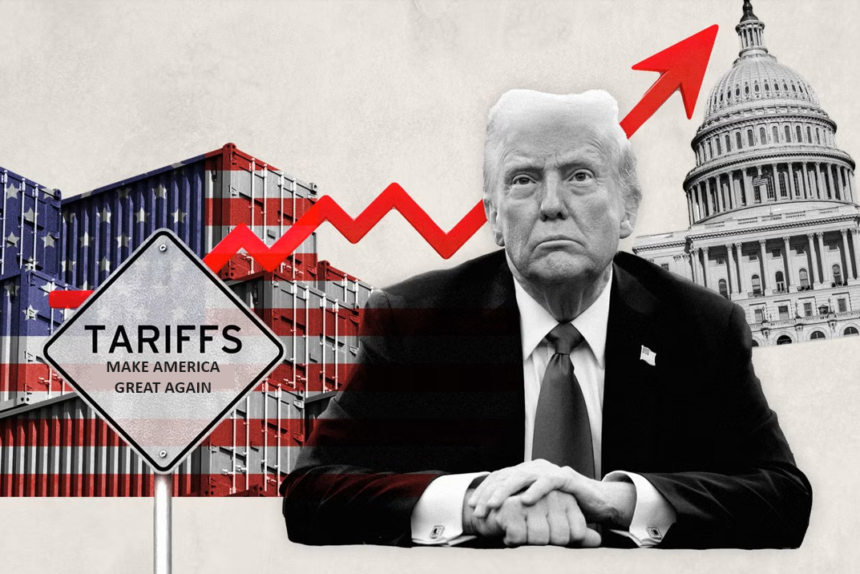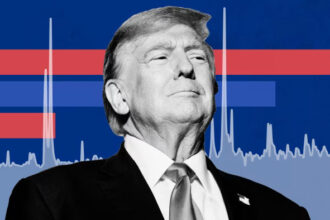Thousands took to the streets across America on Saturday, April 5, in over 1,200 “Hands Off!” rallies, voicing strong opposition to recent tariffs and controversial policies introduced by the Trump administration.
Demonstrators rallied against a range of issues, from deep cuts to Social Security and widespread federal layoffs to reduced consumer protections, harsh immigration policies, and restrictions targeting transgender communities.
Elon Musk’s prominent role advising the Trump administration through the Department of Government Efficiency (DOGE) added to protesters’ anger, drawing criticism for prioritizing corporate profits over public welfare.
President Trump urged his supporters to stay strong via a Truth Social post early Saturday: “Hang tough. It won’t be easy, but the end result will be historic. We will make America great again.” Yet, this reassurance did little to ease tensions.
In Washington, D.C., a large crowd gathered on the National Mall to hear speakers like Paul Osadebe, a lawyer with the Department of Housing and Urban Development and union representative. Osadebe spoke frankly, criticizing Musk and administration officials for putting profit and power ahead of people’s lives and communities.
READ ALSO: Trump tariffs disrupt Nintendo Switch 2 pre-orders in U.S Market
Cities across America saw unprecedented turnout. In Raleigh, organizers who expected about 2,000 protesters were stunned as approximately 45,000 showed up. In New York City’s Midtown Manhattan and Boston Common, thousands more chanted slogans and waved signs declaring “Hands off our democracy” and “Diversity makes America strong.”
The reaction extended beyond U.S. borders, with Americans abroad rallying in European cities like Berlin, Paris, and London. In Paris alone, roughly 200 protesters gathered at Place de la République, holding banners calling to “Resist Tyrants” and “Save Democracy.”
Businesses were also quick to respond to the tariffs. Jaguar Land Rover paused its vehicle shipments to the U.S. due to a hefty 25% tariff, highlighting the economic pressures companies now face.
Internationally, political leaders scrambled to respond. Japan’s Prime Minister Shigeru Ishiba arranged to speak with Trump following news of a steep 24% tariff on Japanese imports but stated that Japan would likely avoid retaliation.
Meanwhile, Israeli Prime Minister Benjamin Netanyahu scheduled a meeting with Trump on April 7 to discuss the 17% tariff affecting Israeli exports to the U.S.
As protests continue to grow, one thing is clear: Americans—and the global community—are closely watching how these policies would change the global trading system.














